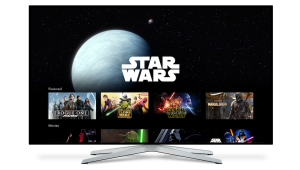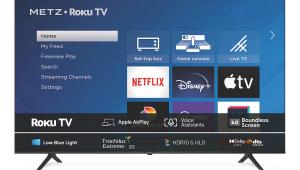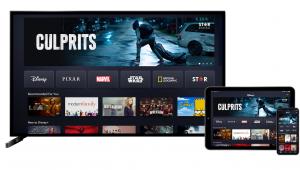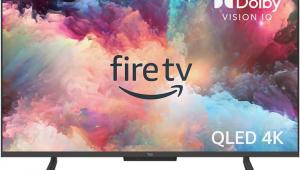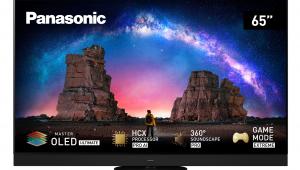Why Warner Bros.'s decision to send its 2021 movie slate to HBO Max will backfire

In a short-sighted move prompted by its parent company AT&T – the US telcoms behemoth – the studio late last year announced simultaneous distribution of its 2021 movie slate (including Dune, pictured) to theatres and streaming service HBO Max. Viewed cynically, this is purely a move to bolster the rather poor subscriber base HBO Max has achieved compared to rivals like Disney+ since it launched in May.
HBO Max has so far failed to really catch the imagination of the US public, attracting 8.6million users by September 2020 and around 12million by December. By comparison, NBCUniversal's Peacock streaming service, which launched Stateside in July, had reached more than 26million subscribers by the end of the year. Warners appears to be selling the family silver for short-term gain to increase its subscriber base.
The press release on this dramatic move said the studio could not just have movies sitting on the self. This is true, but I feel it is using the poor results of Tenet to justify that the theatrical window is not working in the current COVID world – failing to acknowledge that, in my opinion, Tenet is just beautifully made nonsense. Word-of-mouth the film was impenetrable harmed its box office earnings.
The financial Hollywood eco-system has a delicate balance that relies on the theatrical window to recover its productions' costs. Only releasing a film straight to pay-per-view via HBO Max destroys this equilibrium. The formula to justify the massive budget of a blockbuster is complex, and to simply skip a few steps to boost a failing subscription service seems to be, putting it simply, desperate.
Take Tenet. To many this film was not a success on any level, but its global theatrical box office gross is still over $350m. This means it just about washed its face for its cost of production and marketing, and from now on any down-stream revenue will be purely profit. If it had skipped the theatrical window, I doubt it would have come anywhere close and would have put a lot of pressure on the down-stream markets that ride on the wave of the publicity created by the theatrical window. Direct-to-video creates a stigma that the film has no credibility as a quality product, and in the history of direct-to-video you can probably count the breakout hits on two hands. (with the exception of horror films, which seem to have their own rules...).
Furthermore, streaming totally ignores the social aspect of movie watching. People go to the cinema for many reasons – mainly it's for a night out watching something on a larger scale than they'd get at home. Okay, some people have dedicated home cinema rooms, as shown in the pages of HCC, but such people are less than 1 per cent of those who are going to see the movie in its life cycle.
Cutting budgets
Creating a model that is going to reduce the overall revenue for short-term gain and long-term pain will mean studios cutting budgets and becoming less willing to invest in these tent pole movies.
It's all about the return on investment (ROI), and I imagine Warner Brothers will not be putting its 2022 slate out day-and-date with streaming as the ROI for 2021 will be lower than its expectations, causing a major rethink of its policy.
What this whole thing forgets is the industry relies on people paying multiple times to watch the same movie. You pay to see it in a cinema, and you will probably watch it again on a streaming service, and if you really enjoyed it you may buy it again as a physical copy.
None of this also takes into account the lack of respect Warner Bros. is showing the filmmakers who made these films for one destination, the cinema. 'Some of our industry’s biggest filmmakers and most important movie stars went to bed the night before thinking they were working for the greatest movie studio and woke up to find out they were working for the worst streaming service,' said Christopher Nolan.
Of course, Warner Bros. is not the only one. Paramount has also dumped some of its upcoming releases for a quick ROI. United Artists has even been considering offers from several platforms for the 007 movie No Time To Die. Everything seems to have a price.
This move by Warners has angered many in the film industry, and will backfire in more ways than I am sure it had thought. It's an experiment pushed by people who own the data pipes wanting to see an increase on their own ROI at the film industry's expense.
 |
Home Cinema Choice #351 is on sale now, featuring: Samsung S95D flagship OLED TV; Ascendo loudspeakers; Pioneer VSA-LX805 AV receiver; UST projector roundup; 2024’s summer movies; Conan 4K; and more
|






